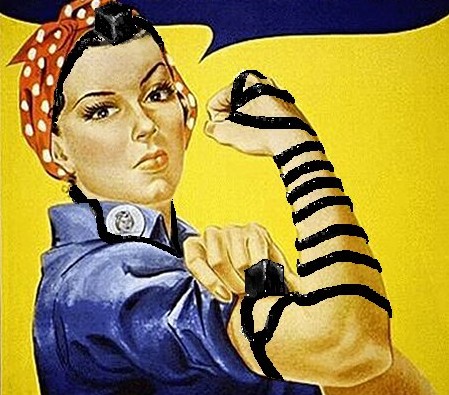
- Meiselman’s 1978 book
Recently, during my never-ending search for relevant information for my senior thesis, which explores recent feminist and queer Jewish theology, I happened upon Moshe Meiselman’s Jewish Woman in Jewish Law, an early traditional Jewish response to feminism. While the book is nearly 35 years old now, it remains a reference text for feminist critics such as Judith Plaskow, whose own work, Standing Again at Sinai: Judaism from a Feminist Perspective, I will critique in my next post. What follows is part book-review, part reflection of Meiselman’s volume.
Jewish Woman in Jewish Law primarily seeks to justify women’s lack of public ritual participation and purported cultural subordination in Judaism—central points of contention for feminists. Thus, it weaves its way through public prayer leadership (traditionally closed to women), the wearing of tefillin (also prohibited), and other issues. Meiselman frames his approach through what he deems to be the divinely ordained, symbiotic interaction between men and women, one which hinges upon separate gender roles and life spheres for each sex.
Regrettably, Jewish Woman misses the brunt of the feminist critique, specifically the impact of patriarchy on the evolution of the Jewish legal process. Meiselman posits a divinely ordained conception of Judaism that renounces any notion of male bias. In doing so, he fails to beg the fundamental question “what if?” and to temporarily color his world through a feminist prism. Indeed, Meiselman’s contention that “[n]onhalakhic (non-legal) questions must receive nonhalakhic answers” proves a glaring analytical flaw.
Meiselman himself notes, “[w]hat has guaranteed the intactness of Jewish law and prevented it from incorporating the cultural biases and values of the cultures in which it has flourished? The answer lies in…the structure of Jewish law and in the psychology of the men who have been active in its development.” The author misses the unsettling implications of his own statement.
Meiselman’s blindness may illustrate Orthodoxy’s innate disconnect from feminist discourse, as a religion developed exclusively by men (and for men?) must grapple with the implications of a movement guided by and for women. Indeed, if, as many Jewish feminists claim, Jewish law has evolved as an interaction between divine will and a patriarchal approach to legal understanding, then Orthodoxy at large has not yet struggled with the implications of this claim. For many, it appears too destabilizing and even too intellectually devastating to dissect.
I argue that Judaism must find a Jewish way into feminism. For Orthodox feminist Tova Hartman, author of Feminism Encounters Traditional Judaism and leader of a semi-egalitarian prayer group in Jerusalem, this means allowing Modern Orthodoxy to fulfill its promise of incorporating “modern knowledge and value systems as restoring to the tradition parts of itself that have been attenuated or lost throughout the course of history.”
Or, as early advocate Blu Greenberg contends in her seminal work On Women and Judaism, while feminism is a secular movement, it can be construed as a very Jewish phenomenon:
“True, the original impulse for all this, as I have said, derives from feminism, but even if such a movement hadn’t evolved, I still would like to think that a creative pondering of the ideals of Torah Judaism might lead to the same conclusions.”
The point here is that feminism and Judaism can interact—but the interaction must be fostered through an interrelation that is religiously constructive and non-polemical. The question that must be asked is “How can feminism be uniquely Jewish?” Upon the foundation of those answers, a Jewish conception of a secular phenomenon may be cultivated.
Judith Plaskow’s work is a good counterbalance to Meiselman, and I will be discussing it in my next installment of Steiner’s Two Cents. Stay tuned!



very interesting. looking forward to more!